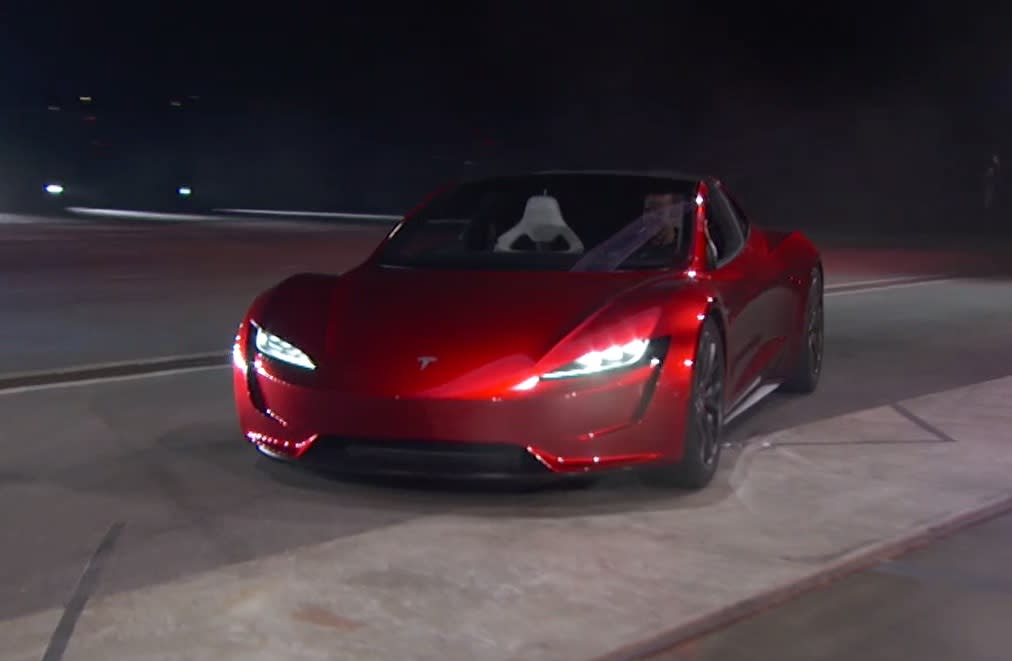Elon Musk says Tesla Roadster delayed until 2023 as supply chain issues persist

Tesla CEO Elon Musk said Wednesday that supply chain shortages continue to stress the automaker, and the company is delaying deliveries of the new version of the Roadster until 2023 at the earliest.
Specifically, he tweeted: “2021 has been the year of super crazy supply chain shortages, so it wouldn’t matter if we had 17 new products, as none would ship. Assuming 2022 is not mega drama, new Roadster should ship in 2023.”
Tesla is not alone among automakers grappling with supply chain pressure. Other automakers, including Toyota and Ford, have slashed production volumes to cope with chip shortages.
The new version of Tesla’s high-performance electric car was supposed to debut in 2020. Tesla first revealed plans for the next-generation Roadster in late 2017 during an event to unveil a heavy-duty truck, the Tesla Semi, which the company also has yet to mass-produce.
At that time, the company said the next-generation Roadster would boast a top speed of at least 250 miles an hour, a 200 kilowatt-hour battery pack that would deliver more than 620 miles of range on a full charge and three electric motors enabling the Roadster to go from 0 to 60 miles per hour in under 2 seconds (and a quarter-mile in under 9 seconds).
Musk later promised the next-gen Roadster would be sold with a premium “SpaceX option” including rocket thrusters that would allow the car to hover far above the ground. He described it as a “full-on James Bond” vehicle in an episode of “Jay Leno’s Garage.”
According to Tesla’s website, Roadster reservations require an initial $5,000 credit card payment with a $45,000 wire transfer payment due in 10 days. The reservation money is refundable up until the customer signs a purchase agreement. Tesla says it will send to these purchase agreements near the date of production.
Musk and other Tesla executives have discussed supply chain problems and parts shortages on earnings calls in recent quarters, emphasizing chip shortages.
On the second-quarter shareholder call, Musk said Tesla went through a “big struggle” to get enough modules that control the airbags and seatbelts in the company’s cars. A lack of those modules limited the company’s production in Fremont, California, and Shanghai.
Musk said May 31 that Tesla had raised the prices for some of its vehicles, and removed some parts from them, due to the rising cost of parts and raw materials amid recent supply chain pressures.